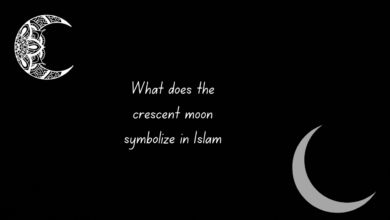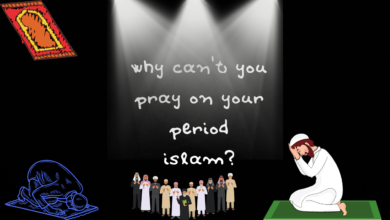Charity As Taught By Quran And Prophet Muhammad (PBUH)
Islamic Perspective on Compassionate Giving

Charity As Taught By Quran And Prophet Muhammad (PBUH)
Charity, known as “Sadaqah” or “Zakat” in Islam, holds great significance. It is a means of purifying one’s wealth and helping those in need, thus promoting social justice and compassion.

Introduction
Charity, or “sadaqah” in Arabic, holds a central place in Islam and is considered one of the most virtuous acts a Muslim can engage in. The Quran and the teachings of Prophet Muhammad (peace be upon him) provide comprehensive guidance on charity, emphasizing its importance, types, and the manner in which it should be given. This article explores the concept of charity as taught by the Quran and the Prophet Muhammad (PBUH) and highlights the profound impact it has on the lives of both the giver and the receiver.
The Quranic Perspective
- Obligation: In Islam, charity is not merely a voluntary act of goodwill; it is an obligatory practice. The Quran mentions “zakat,” the obligatory almsgiving, as one of the Five Pillars of Islam. This form of charity requires Muslims to give a portion of their wealth to those in need, ensuring social justice and financial support for the less fortunate.
- Voluntary Charity: Alongside zakat, the Quran encourages Muslims to engage in voluntary acts of charity. The term “sadaqah” encompasses all forms of voluntary giving and is often associated with spontaneous acts of kindness and generosity. The Quran commends those who give freely from their hearts and do not expect any worldly return.
- Ways of Giving: The Quran outlines various ways in which charity can be given. It can take the form of money, food, clothing, or any resource that can benefit those in need. The Quran also emphasizes the significance of providing charity discreetly, ensuring that the act of giving is sincere and not driven by the desire for recognition.
The Teachings of Prophet Muhammad (PBUH)
- Compassion and Empathy: Prophet Muhammad (PBUH) exemplified compassion and empathy in his life. He emphasized the importance of feeling the suffering of others and encouraged his followers to help those in need, stating, “The believer’s shade on the Day of Resurrection will be his charity.”
- Equal Opportunities: The Prophet (PBUH) ensured that charity was accessible to all members of society. He encouraged even the poorest to give whatever they could, reinforcing the idea that charity knows no bounds and that everyone can contribute, regardless of their financial situation.
- Acts of Kindness: Prophet Muhammad (PBUH) often spoke of the virtues of small acts of kindness, such as smiling at others or helping someone in need. He emphasized that these seemingly minor gestures could also be considered forms of charity, contributing to a positive and compassionate society.
- Charity as a Means of Purification: The Prophet (PBUH) taught that charity purifies the soul and wealth of the giver. It helps individuals detach from the love of material possessions and fosters a sense of selflessness, humility, and gratitude.
Also Check
- Islam in the Middle of Christianity
- Jesus and Mary in Islam
- Is Islam monotheistic or polytheistic?
- Fragrance of the beloved Prophet Muhammad (PUBH)
- What conditions were laid between the Muslims and the infidels on the occasion of peace at Hudaybiyah?
The Impact of Charity
- Social Welfare: Charity in Islam is not limited to addressing immediate needs but also aims to promote long-term social welfare. By giving to the poor, orphans, and those in distress, society can reduce poverty and foster a sense of communal responsibility.
- Economic Equity: Zakat, as an obligatory form of charity, redistributes wealth within society, ensuring that financial resources are shared more equitably. This helps bridge the wealth gap and promotes economic stability.
- Spiritual Growth: Charity is seen as a means of spiritual growth in Islam. It encourages Muslims to cultivate qualities such as generosity, humility, and gratitude, ultimately bringing them closer to Allah.
- Compassionate Society: Through charity, Muslims are encouraged to create a compassionate and caring society. Acts of kindness and giving foster empathy, strengthen community bonds, and contribute to a more harmonious coexistence.
Conclusion
Charity, as taught by the Quran and Prophet Muhammad (PBUH), is a cornerstone of Islamic faith and practice. It is not only a means of alleviating material suffering but also a powerful tool for personal and societal transformation. The Quranic obligation of zakat, along with the voluntary acts of sadaqah, guide Muslims to fulfill their social and moral responsibilities, creating a more compassionate and just society. In the words of the Prophet Muhammad (PBUH), “Charity does not decrease wealth, and Allah increases the honor of one who forgives.”
In today’s world, the lessons on charity from Islam remain profoundly relevant, inspiring individuals of all backgrounds to engage in acts of kindness, generosity, and compassion, thereby making the world a better place for all.
(FAQs) about charity as taught by the Quran and Prophet Muhammad (peace be upon him):
What is the significance of charity in Islam according to the Quran and Prophet Muhammad (PBUH)?
Charity, known as “Sadaqah” or “Zakat” in Islam, holds great significance. It is a means of purifying one’s wealth and helping those in need, thus promoting social justice and compassion.
What is the difference between Zakat and Sadaqah in Islam?
Zakat is a mandatory form of charity, while Sadaqah is voluntary. Zakat has specific criteria and is obligatory for eligible Muslims, while Sadaqah can be given at any time and in any amount.
How is the concept of charity presented in the Quran?
The Quran emphasizes charity as a means of earning Allah’s pleasure and mentions its benefits for individuals and society. Verses like Surah Al-Baqarah (2:267-273) encourage believers to give to those in need.
What is the significance of giving charity with sincerity in Islam?
Sincerity, or “Niyyah,” is essential when giving charity. Prophet Muhammad (PBUH) stressed that acts of charity should be done solely for the sake of Allah and not for showing off or seeking praise.
Are there specific guidelines for calculating and distributing Zakat in Islam?
Yes, Zakat has specific guidelines for calculation and distribution. It is typically 2.5% of a Muslim’s accumulated wealth and should be given to eligible recipients, such as the poor, orphans, and those in need.
What are some of the virtues associated with charity in Islam?
Charity is considered a virtuous act in Islam. It purifies wealth, earns Allah’s rewards, helps those in need, and strengthens the sense of community and empathy among believers.
Can non-Muslims also give and receive charity in Islam?
Yes, Islam encourages acts of charity towards all people, regardless of their religion. Muslims can give charity to non-Muslims, and non-Muslims can also provide charity to Muslims.
Are there any specific times or occasions when charity is highly recommended in Islam?
Giving charity is recommended at all times, but certain occasions, such as Ramadan, Eid, and times of hardship, are especially encouraged for increased acts of charity.
How does Prophet Muhammad (PBUH) exemplify the concept of charity in his life?
Prophet Muhammad (PBUH) was known for his generosity and kindness. He regularly gave to those in need, even when he had limited resources, setting an example of selflessness and compassion.
Can charity in Islam include non-monetary forms of assistance, such as volunteering or providing knowledge and skills?
Yes, charity in Islam is not limited to money. It can also include volunteering, sharing knowledge, offering skills, and providing any form of assistance that benefits others and is done with a sincere intention.






